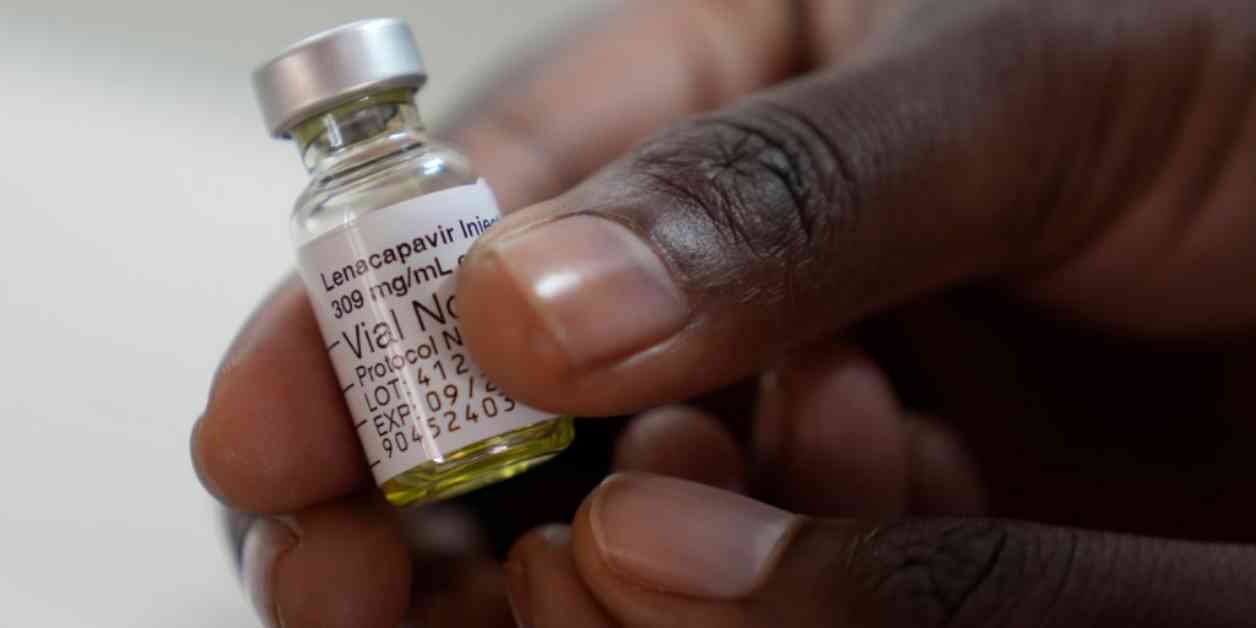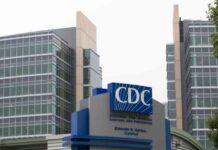Injectable HIV Prevention Drug: Balancing Efficacy and Affordability
The highly anticipated results from groundbreaking clinical trials of a long-acting, injectable HIV-prevention drug have been revealed, sparking excitement and concern among HIV advocates. Lenacapavir, a drug that only needs to be dosed every six months, has shown remarkable efficacy in preventing HIV transmission among different populations. With results showing a 89% effectiveness rate in gay, bisexual, and transgender individuals, as well as 100% efficacy in cisgender women, the potential impact of lenacapavir on the HIV epidemic is significant.
Dr. Jared Baeten, senior vice president of virology clinical development at Gilead Sciences, the manufacturer of lenacapavir, expressed awe at the results, stating, “What this can mean for the trajectory of the HIV epidemic is everything that all the world has imagined for years. We can actually turn off new infections.” The promising findings have reignited hope for a future where HIV transmission can be significantly reduced.
However, amidst the celebration of lenacapavir’s success, a stark reality looms large – its exorbitant cost. Priced at $3,450 per month for use as HIV treatment, lenacapavir’s affordability raises concerns about accessibility for those who need it most. Jen Kates, director of global health and HIV policy at the nonpartisan health nonprofit KFF, emphasized the importance of ensuring that lenacapavir reaches all individuals in need, both in the United States and worldwide.
Gilead, the pharmaceutical company behind lenacapavir, has a track record of manufacturing other HIV prevention drugs such as Truvada and Descovy. While these daily oral tablets have been instrumental in HIV prevention, their affordability has been a point of contention. With lenacapavir poised to revolutionize HIV prevention, the question of cost remains a critical issue that must be addressed.
The current disparity in pricing between lenacapavir and generic versions of other HIV prevention drugs like Truvada raises concerns about equitable access to this groundbreaking treatment. While Truvada is available as a generic for as little as $20 per month, lenacapavir’s steep price tag may pose challenges for widespread adoption, particularly among marginalized communities most at risk for HIV transmission.
As Gilead plans to submit lenacapavir for approval for use as pre-exposure prophylaxis (PrEP) to the Food and Drug Administration, the issue of affordability will be a key consideration in determining the drug’s impact on public health. The potential for lenacapavir to transform HIV prevention is immense, but its high cost may present a barrier to those who stand to benefit the most from its effectiveness.
The Impact of Injectable HIV Prevention Drugs on Public Health
The introduction of long-acting, injectable HIV prevention drugs like lenacapavir and Apretude has the potential to revolutionize the landscape of HIV prevention. These drugs offer a more convenient alternative to daily oral medication, reducing the burden of adherence and increasing efficacy in preventing HIV transmission.
The advanced clinical trials of lenacapavir have demonstrated its superior effectiveness compared to traditional oral PrEP medications like Truvada. With an 89% lower HIV rate among those who received lenacapavir compared to Truvada, the potential for this injectable drug to make a significant impact on reducing new HIV infections is clear.
In addition to lenacapavir, Apretude, another injectable HIV prevention drug, has also shown promise in clinical trials. Despite its monthly sticker price of $1,965, Apretude offers a less frequent dosing schedule compared to traditional oral PrEP medications, making it a viable option for individuals who struggle with daily adherence.
The introduction of these innovative HIV prevention drugs represents a significant step forward in the fight against HIV/AIDS. By providing individuals with more options for preventing HIV transmission, these injectable drugs have the potential to reach populations that may have difficulty adhering to daily oral medication regimens.
Challenges and Opportunities in Affordable HIV Prevention
While the efficacy of injectable HIV prevention drugs like lenacapavir and Apretude is undeniable, the issue of affordability remains a critical concern. The high cost of these medications raises questions about access and equity in HIV prevention, particularly for marginalized communities disproportionately affected by the virus.
As pharmaceutical companies like Gilead navigate the process of pricing and approval for these innovative drugs, it is essential to prioritize affordability to ensure that all individuals at risk for HIV transmission can access these life-saving treatments. The success of these injectable HIV prevention drugs hinges on their availability and affordability for those who need them most.
Moving forward, it will be crucial for policymakers, healthcare providers, and pharmaceutical companies to work together to address the challenges of cost and accessibility in HIV prevention. By prioritizing affordability and equitable access to these groundbreaking medications, we can take significant strides towards reducing new HIV infections and ultimately ending the HIV epidemic.
In Conclusion
The development of long-acting, injectable HIV prevention drugs like lenacapavir and Apretude represents a significant advancement in the field of HIV prevention. These innovative medications offer a more convenient and effective alternative to traditional oral PrEP, providing individuals with greater flexibility in preventing HIV transmission.
While the efficacy of these injectable drugs is promising, the issue of affordability remains a key consideration in ensuring their widespread adoption and impact on public health. By addressing the challenges of cost and accessibility, we can create a more equitable healthcare system that prioritizes the health and well-being of all individuals at risk for HIV transmission.
As we look towards the future of HIV prevention, it is essential to prioritize affordability, accessibility, and equity in the development and distribution of innovative medications like lenacapavir and Apretude. By working together to overcome the barriers to affordable HIV prevention, we can make significant progress towards ending the HIV epidemic and creating a healthier, more inclusive world for all.


















